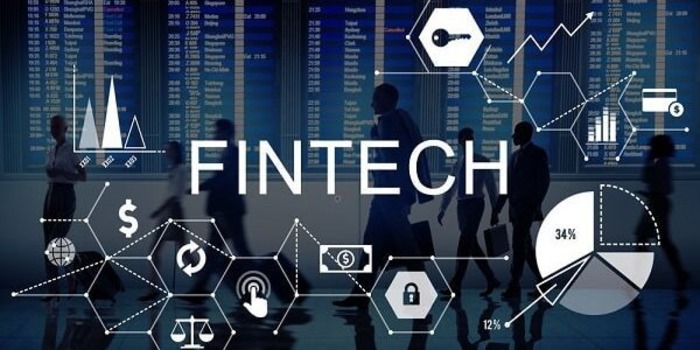Navigating Regulations and Compliance in 2025
Nigeria’s fintech sector is booming, with innovations in mobile payments, digital lending, and blockchain transforming financial services. As Africa’s largest economy, Nigeria hosts over 200 fintech companies, driving financial inclusion and economic growth. However, this rapid expansion comes with complex legal hurdles. Understanding fintech regulations in Nigeria is crucial for startups and established firms to avoid penalties, ensure compliance, and foster sustainable operations.
At Penlit & Greyson Legal Practice, a leading fintech law firm in Nigeria, we specialize in guiding businesses through these challenges. Our expertise in fintech compliance helps clients navigate licensing, data protection, and regulatory updates, positioning them for success. In this article, we’ll explore the key legal aspects of fintech in Nigeria in 2025, drawing on the latest developments to help you stay ahead.
Key Regulatory Bodies Overseeing Fintech in Nigeria
Fintech regulations in Nigeria are enforced by multiple agencies, each focusing on specific areas. This multi-layered approach ensures robust oversight but can create compliance complexities.
- Central Bank of Nigeria (CBN): As the primary regulator for payments and banking, the CBN oversees fintech through frameworks like the Payment System Vision 2025, which emphasizes innovation in open banking and digital currencies. Key guidelines include the Operational Guidelines for Open Banking, promoting data sharing to boost fintech ecosystems. In 2025, the CBN has updated circulars on AML solutions and economic recovery measures, impacting fintech operations.
- Securities and Exchange Commission (SEC): The SEC regulates fintech involving securities, digital assets, and capital markets. Under the new Investment and Securities Act (ISA) 2025, enacted in March 2025, digital assets like cryptocurrencies are now explicitly recognized as securities, requiring registration for virtual asset service providers (VASPs). Amendments to the Digital Assets Rules, effective June 30, 2025, strengthen marketing oversight and compliance.
- Nigeria Data Protection Commission (NDPC): Data privacy is paramount in fintech. The Nigeria Data Protection Act (NDPA) 2023, supplemented by the General Application and Implementation Directive (GAID) 2025 effective September 19, 2025, mandates strict data handling. Fintech firms must appoint a Data Protection Officer (DPO) and comply with enhanced rules on personal data processing.
- Federal Competition and Consumer Protection Commission (FCCPC): Focuses on consumer rights in digital lending. The 2025 Digital Lending Regulations introduce rules for non-traditional lending, emphasizing transparency and fair practices.
Other bodies like the Federal Inland Revenue Service (FIRS) enforce tax compliance, with stricter 2025 rules on withholding tax and international reporting.
Major Fintech Laws and Updates in 2025
2025 has seen significant regulatory evolution, balancing innovation with risk management. Here’s a breakdown of the latest fintech laws in Nigeria:
1. Investment and Securities Act (ISA) 2025
Signed into law in March 2025, ISA 2025 modernizes capital market rules, incorporating tech-driven assets. Key innovations include:
- Regulation of digital assets, tokenized securities, and online forex platforms.
- Mandatory SEC licensing for fintechs dealing in crypto or digital securities.
- Stricter penalties for non-compliance, aiming to protect investors amid Nigeria’s growing crypto market.
This act positions Nigeria as a fintech hub while addressing overregulation concerns.
2. Data Protection Enhancements Under GAID 2025
The GAID replaces the 2019 NDPR, requiring fintechs to implement robust data governance. Fintech apps handling user data must:
- Obtain explicit consent for data use.
- Conduct regular audits and report breaches within 72 hours.
- Align with international standards like GDPR for cross-border operations.
Non-compliance can result in fines up to 2% of annual turnover.
3. CBN’s Payment and Open Banking Frameworks
The CBN’s Regulatory Sandbox allows fintechs to test innovations under supervision. Updates in 2025 include:
- Expanded guidelines for digital currencies and AML/CFT, with baseline standards for automated tools.
- Licensing for payment service providers, emphasizing consumer protection.
4. Anti-Money Laundering (AML) and Counter-Financing of Terrorism (CFT)
Fintechs must comply with FATF standards, updated in 2025 to include crypto providers. The CBN mandates KYC processes and reporting suspicious activities.
These updates reflect Nigeria’s push for a mature fintech landscape, projected to grow significantly by 2025.
Common Legal Challenges for Fintech Companies in Nigeria
Despite opportunities, fintech firms face hurdles:
- Licensing Delays: Obtaining CBN or SEC approvals can take months, with frequent changes adding uncertainty.
- Data Privacy Risks: High-profile breaches highlight NDPA enforcement, especially for apps handling sensitive financial data.
- Overregulation: Balancing innovation with compliance, as seen in debates around ISA 2025.
- Cross-Border Issues: Global expansion requires alignment with international regs like PSD2.
- Tax and Consumer Protection: FIRS’s 2025 rules increase scrutiny on fintech revenues.
Best Practices for Fintech Compliance in Nigeria
To thrive, adopt these strategies:
- Conduct Regulatory Audits: Regularly review operations against CBN and SEC guidelines.
- Implement Strong Data Governance: Appoint a DPO and use encryption for user data under GAID 2025.
- Engage in the Regulatory Sandbox: Test products safely before full launch.
- Partner with Legal Experts: Draft compliant contracts and navigate licensing.
- Stay Updated: Monitor circulars from regulators to adapt quickly.
How Penlit & Greyson Legal Practice Can Support Your Fintech Business
As a top fintech law firm in Nigeria, Penlit & Greyson offers tailored services to build authority and ensure compliance:
- Licensing and Registration: Assist with CBN sandbox applications and SEC approvals under ISA 2025.
- Compliance Advisory: Develop data protection policies aligned with NDPA and GAID.
- Dispute Resolution: Handle regulatory disputes and AML investigations.
- Strategic Guidance: Advise on digital assets, open banking, and international expansion.
Our team has helped numerous fintech startups secure licenses and scale operations. Visit our fintech services page for more details.
Conclusion: Secure Your Fintech Future in Nigeria
The legal side of fintech in Nigeria in 2025 is dynamic, with ISA 2025 and GAID 2025 setting new standards for innovation and protection.



